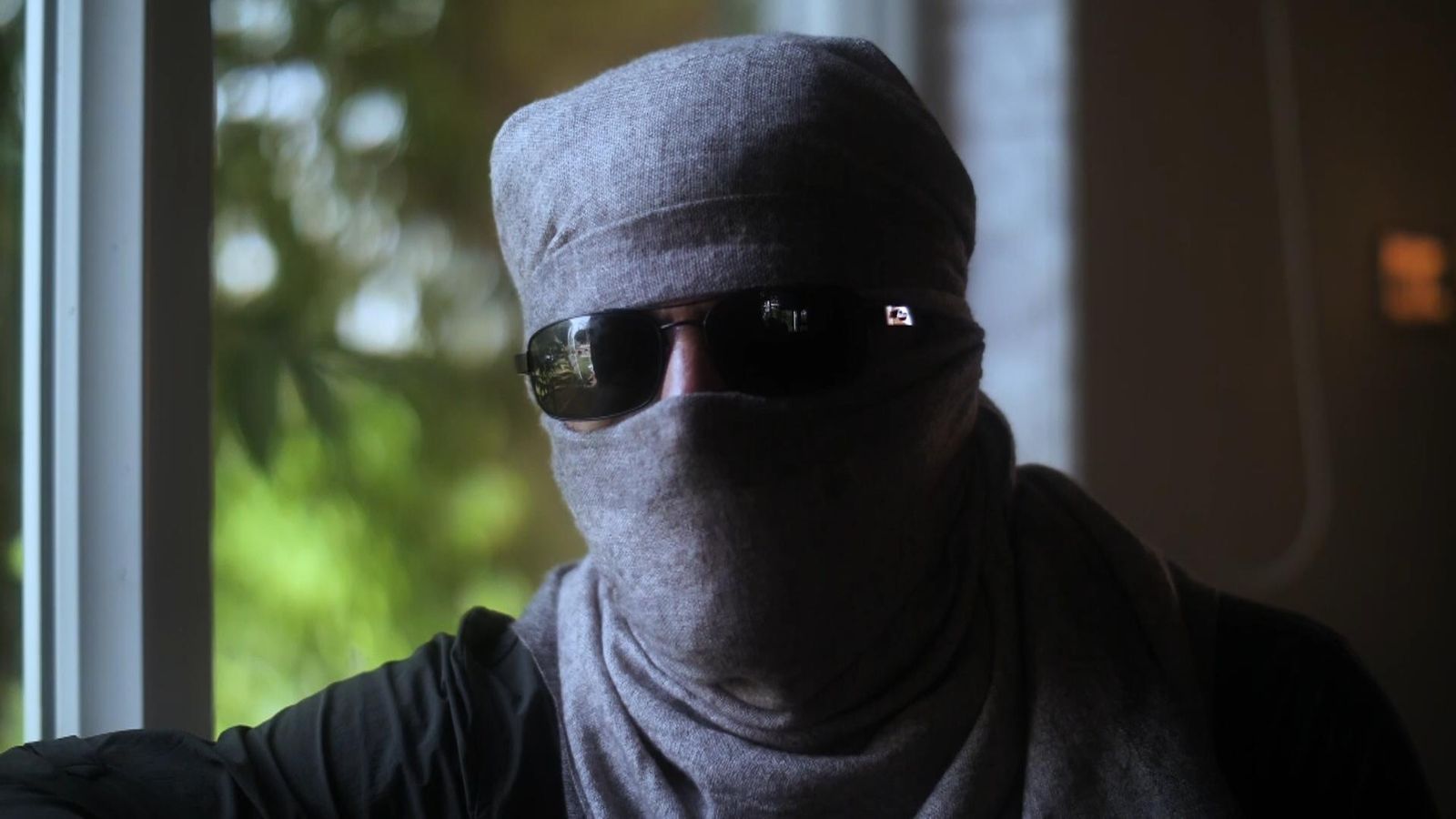The mountains of Kurdish controlled northern Iraq hide some of Europe’s most wanted men – the smuggling gangs that help thousands of people on the dangerous and illegal journeys into Britain, France, and elsewhere on the continent. We drove many hours to the house of one of those men.
Shrouded in a headscarf and wearing dark glasses for disguise, the smuggler lights up a cigarette and insists on checking the framing of our shot to make sure nothing will give away his location. A handgun lies next to the ashtray on the table in front of him.
This meeting has taken days of negotiation, and we’re here on his strict terms; we must agree to reveal nothing about his identity – if we do, and the police find him, he says he will take some of our team down with him. It’s hard to tell whether he’s joking or not.
He’s wary, for sure. So much so that he won’t even come outside with us, in case he is seen by neighbours and reported to the undercover police.
A TV screen on the wall shows CCTV images of the property – this might be a lucrative business, he can earn up to $100,000 in a single year, but the price is paranoia and he is a pariah to many, even in his own town.
Nothing is off limits for the interview, so I ask him straight out if he is a murderer.
“No,” is the expected reply. “I do not force anyone to get on boats and yachts. They come themselves, they pay, they do a lot of begging.
A lost royal city where worshippers prayed to a water goddess has been found, researchers believe
Flights disrupted and people told to stay at home as sandstorm sweeps across Middle East
George W Bush accidentally condemns ‘unjustified and brutal’ Iraq invasion
“Why would you go? You know it’s water, waves, drowning, death, thirst… thousands of things. Why would you go? I am not forcibly taking you. Why would I want to kill you? No. It is your opinion, and you decide on it.”
I challenge him on who will win the “war” between smugglers and European governments, and he not only boasts that nothing could stop his work but then reveals there is already a new secret route operating this summer, unknown to the security services.
“There is no one that can stop smuggling. If you close this route, I will try to open another one. This is how smuggling is.
“Smugglers will win it because there is no power in Britain or in any other country that can eliminate smugglers. Another network will always be formed again.
“There are different routes, but I cannot tell you about the [new] route. The path through Turkey has become difficult now, the water causes problems. But now there are different paths which I cannot tell you about, they are easier.
“In this week only around 100 people left with a different route, but I will not tell you of that one.”
And I ask him about Britain’s relatively new policy to deport illegal migrants to Rwanda, genuinely expecting him to know little of the row between morality and politics going on back home.
I was wrong. Not only was he aware but told us the migrants he deals with knew about the legal challenges that had successfully delayed the first deportation flights.
It is a surprising endorsement of a policy that has so divided opinion in the UK.










